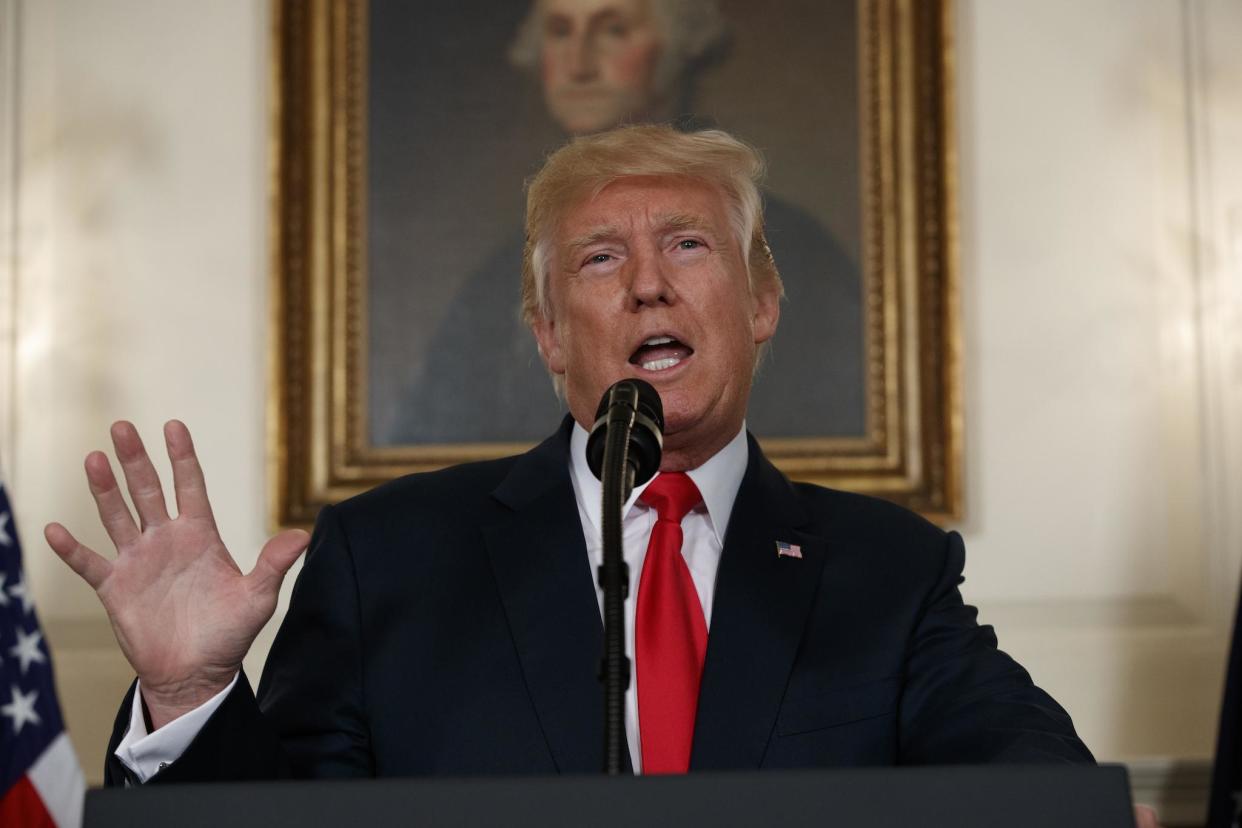Donald Trump may be the first US president to benefit from sending troops to Afghanistan

Mr Trump has changed his mind about Afghanistan – no small matter of detail, but a bloody quagmire for American forces that he was previously determined to quit. One of the few positives about having the pathological egotist Donald Trump as President of the United States and leader of the free world is that only someone with his Olympian levels of self-confidence can perform policy U-turns with such consummate ease.
So the war continues, almost 16 years on from when the first troops and bombing raids were ordered into the Tora Bora mountains by George W Bush. As with his last two predecessors, Trump will send more American troops to save Afghanistan from the resurgent Taliban. He would like Nato allies and “global partners” to support the US in this. (So far the British promise of an extra 85 advisers looks rather lukewarm, something that may not serve the national interest well post-Brexit).
Unlike the more diplomatic President Obama and President George W Bush, he makes plain American irritation with Pakistan for not doing enough to deliver security to the region. He emphasises that he is not there for “nation building” but to reinforce America’s security against terrorist threats. Still, he has reverted to the pattern of US policy pursued since 9/11, to put a precise date on it.
The imperatives of American interests have trumped Trump’s vanity. He may now find himself attacked by former allies, such as the Breitbart organisation, but he won’t mind that too much. Where, Mr Trump may wonder, can they go politically if they drop their support for him? The Democrats?
Mr Trump’s detractors on the left, centre and far right will have plenty of ammunition to fire at him. On the campaign trail Mr Trump derided the interventionist policies of his predecessors, Democrat and Republican. His was an avowedly isolationist mindset, the foreign and defence policy counterpart to his economic protectionism. It was to be America First, and no more foreign adventures to bring peace to ungrateful peoples in faraway places many Americans knew little of.
Mr Trump has changed his mind before, on the bombing of Syria (supposedly urged on him by his more thoughtful daughter Ivanka) and, rather against his will and grumpily, on leaving Obamacare in place. Other changes in trajectory – some engagement with the Paris Climate Change Treaty and the transpacific trade deal – may also follow. It’s also worth noting, albeit in a dizzying fashion, the administration’s altered attitude towards Russia, which is for the time being far removed from the grand bargain that Trump supporters were once promised.
Only six months or so into his administration, then, and we already have a mark two Trump presidency emerging. Gone are some of the more exotic creatures to have padded around the Oval Office, people who made Mr Trump look statesmanlike and pious; in are generals and bureaucrats who are now building the foundations of a more sustainable government that could actually deliver some of the ambitious pledges the 45th President made, and, after all, was voted in to make reality.
The more outlandish of the ideas Mr Trump had – such as the banning of “Muslims” from certain named nation states – have been moderated by the judiciary, while Congress will make him look again at affordable healthcare. Out of all that will emerge a much better President Trump than at first seemed likely, one that can still make some claim to be radical, but also functioning.
Mr Trump’s plans and personnel have hardly survived their first skirmishes with reality, but that is no bad thing. The ironic aspect of this for his detractors is that a more conventional and stable presidency, coupled with Mr Trump’s undoubted talent for communication (via Twitter) and brazening out the media could actually bring this most unlikely politician closer to winning a second term in 2020, should he decide he wants it.
That would especially be the case if his economic policies do indeed start to bring jobs back to the Trump heartlands that placed so much faith in him, and where people tend to care little about what their President does so long as he delivers better living standards for their children than the ones they enjoyed. Provided he can manoeuvre around the many investigations into his campaign’s links with Russia and defy some determined attempts to impeach him, Mr Trump’s political future may look rosier in a year or two than can be imagined today. He may yet turn out to be the first president to benefit form sending more troops to Afghanistan.

 Yahoo News
Yahoo News 
